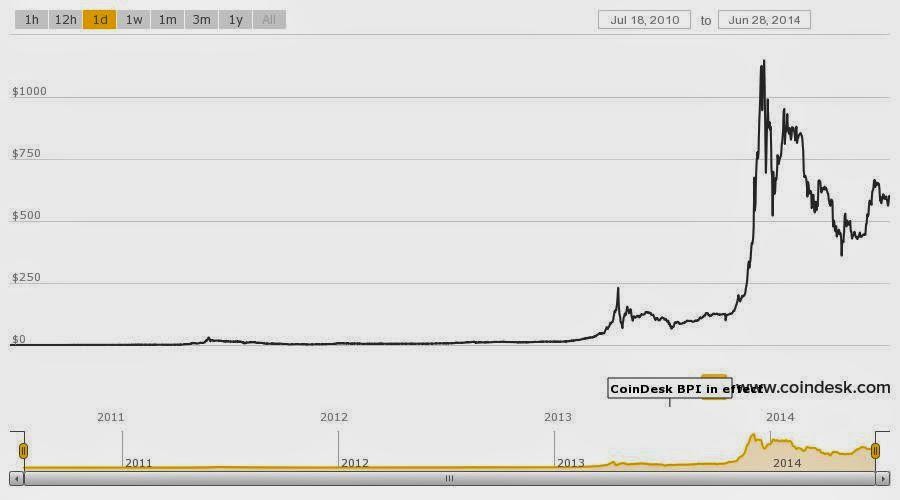5 Things You Need to Know About the Bitcoin ETF (FXC FXY GLD SLV)
Post on: 18 Июль, 2015 No Comment

Yesterday, the Winklevoss Bitcoin Trust filed a registration statement with the SEC to offer an exchange-traded fund that if approved will give mainstream investors easier access to the controversial cyber-currency. But even if the ETF gets regulatory approval, you shouldn’t invest before you know all the risks involved.
Fortunately, one of the hallmarks of U.S. securities law is that companies and investment vehicles seeking to make public offerings of shares have to disclose the risks involved in their ventures. So let’s take a look at the highlights of the Winklevoss ETF’s registration statement to uncover some of the most important things to keep in mind if you’re planning to invest.
1. Bitcoins are controllable only by the possessor of both the unique public and private keys relating to the local or online digital wallet in which the Bitcoins are held, which wallet’s public key or address is reflected in the Bitcoin Network’s public Blockchain. To the extent such private keys are lost, destroyed or otherwise compromised, the Trust will be unable to access the related Bitcoins and such private keys will not be capable of being restored by the Bitcoin Network.
One of the primary worries that would-be Bitcoin users have about digital currency is that its existence relies on computer networks beyond their control. By contrast, existing currency and commodity ETFs can in many cases point to actual physical assets. SPDR Gold Trust ( NYSEMKT: GLD ) and iShares Silver Trust ( NYSEMKT: SLV ). for instance, publish lists of physical bullion bars to support the underlying value of their shares. Currency ETFs CurrencyShares Canadian Dollar ( NYSEMKT: FXC ) and CurrencyShares Japanese Yen ( NYSEMKT: FXY ) usually turn to short-term investments denominated in their respective currencies.
Hacking attacks in the past have led to theft and caused overall losses in Bitcoin-investor confidence, causing temporary price drops. With such a huge concentration of Bitcoins, the ETF would not only have to protect against existing threats but anticipate future ones before they occurred in order to avoid putting investors’ funds at risk.
2. A decline in the popularity or acceptance of the Bitcoin Network would harm the price of the Shares.
Prices of Bitcoins have posted amazing gains since they first came out, but the gains have come with intense volatility. Yet so far, the actual use of Bitcoins has been fairly limited, with most people perceiving the network’s anonymity as being of greatest use for illicit activity. Until mainstream uses of Bitcoins start appearing, the digital currency’s growth will remain limited.
3. If a malicious actor or botnet obtains control in excess of 50 percent of the processing power active on the Bitcoin Network, such actor or botnet could manipulate the source code of the Bitcoin Network or the Blockchain in a manner that adversely affects an investment in the Shares or the ability of the Trust to operate.
The value of Bitcoins relies on arguably the most substantial counterparty risk existent: that the Bitcoin Network on which the ETF will rely can and will defend itself from attacks. If the network fails to protect itself, then the registration statement notes that the ETF might not even be able to function, let alone retain its value.
4. As the Sponsor and its management have no history of operating an investment vehicle like the Trust, their experience may be inadequate or unsuitable to manage the Trust.
The Winklevosses reached notoriety due to their connection with what later became Facebook. although they’ve also heavily invested in Bitcoins. Yet the S-1 filing clearly states that the entity that acts as the ETF sponsor, which is wholly owned by Winklevoss Capital Management, has no ETF experience. Especially in dealing with the challenges of holding an asset that no exchange-traded product has held before, investors shouldn’t let name recognition take the place of true expertise in dealing with the ins and outs of investment vehicles.
5. It may be illegal now, or in the future, to acquire, own, hold, sell or use Bitcoins in one or more countries, and ownership of, holding or trading in Shares may also be considered illegal and subject to sanction.
It’s not common for investors to have to worry about the current legality of the assets in which they invest. The SEC likely wouldn’t approve the ETF for trading if it thought that the ETF was breaking the law simply by owning Bitcoins, but with the currency attracting large amounts of regulatory scrutiny from those concerned about its more questionable uses, you can’t rule out the possibility of government action rendering Bitcoins unusable for ordinary mainstream transactions.
Think twice before you buy
The Winklevoss Bitcoin Trust faces an uphill battle to gain approval from the SEC to list, given all these risks. But one of the benefits of the IPO regulatory process is that investors get to see light shed on all the prospective investments made available to them. If the SEC eventually approves the offering, buyers of a Bitcoin ETF will have only themselves to blame if anything goes wrong in the future.
Want an ETF you can really count on? To learn more about a few ETFs that have great promise for delivering profits to shareholders, check out The Motley Fool’s special free report 3 ETFs Set to Soar . Just click here to access it now.














